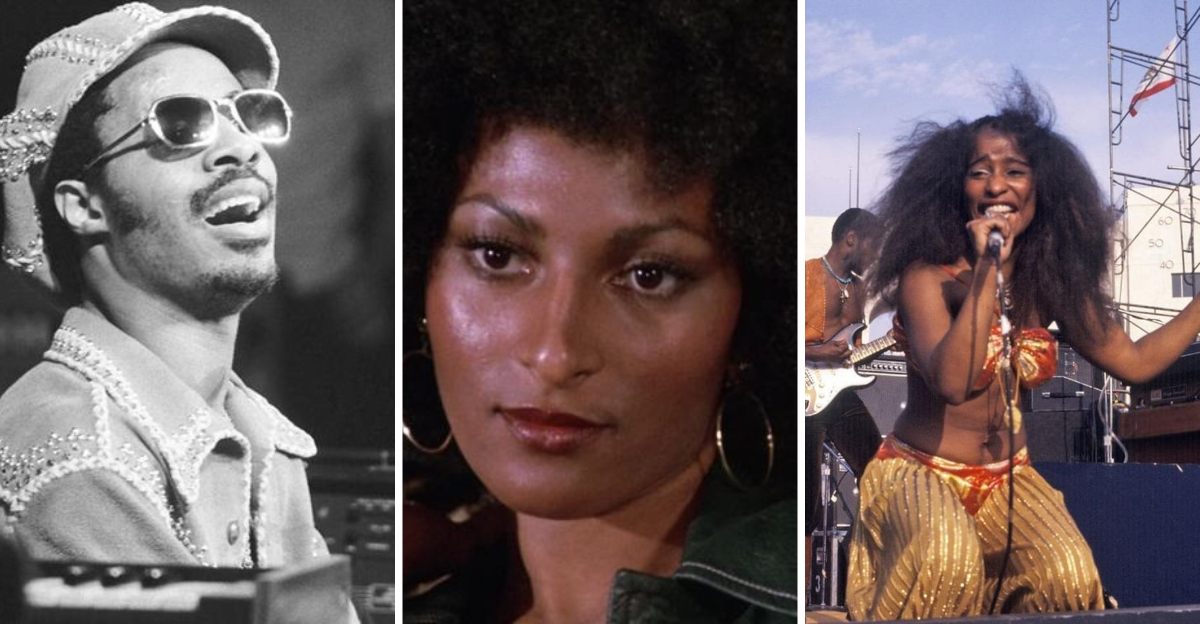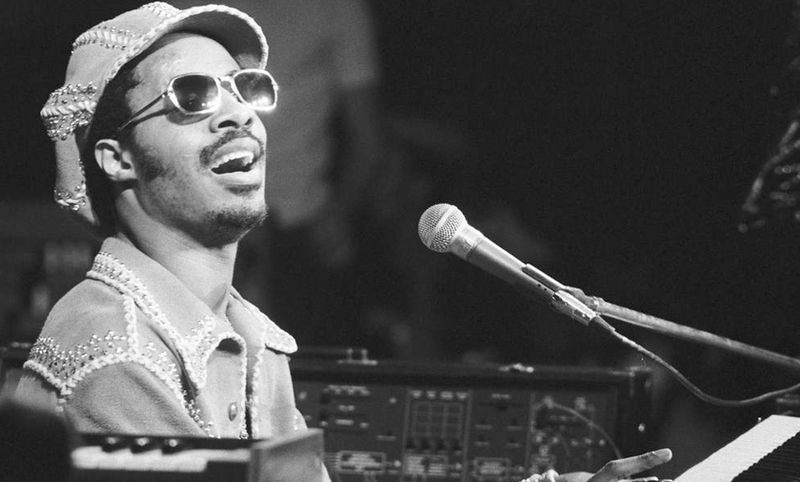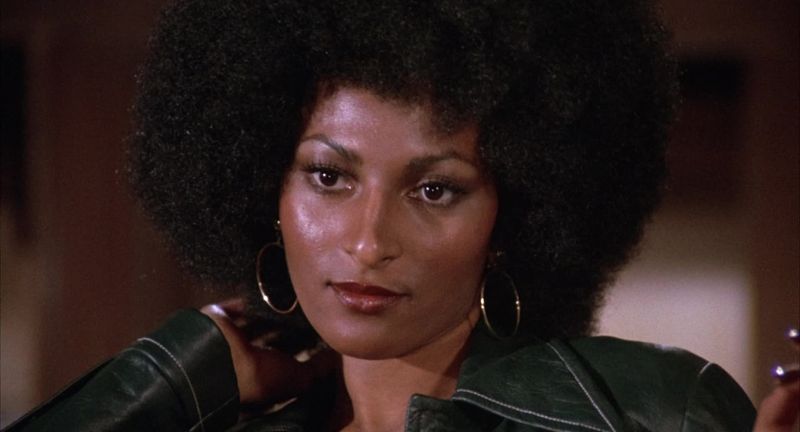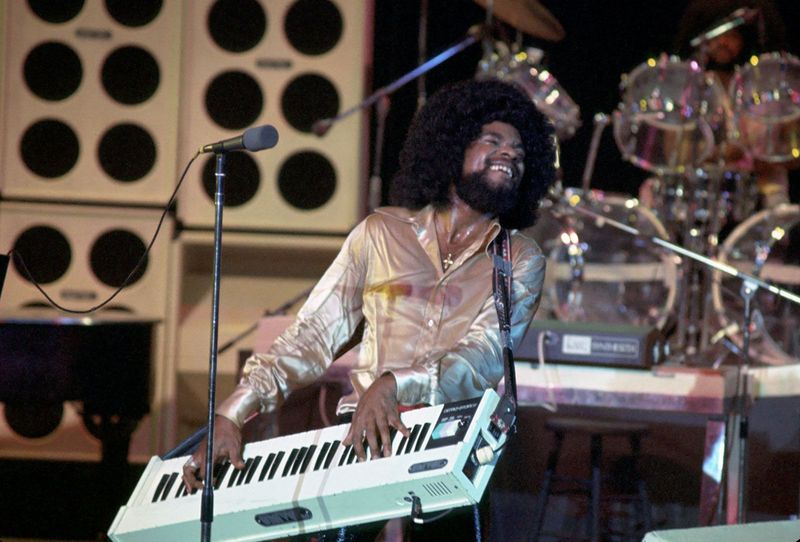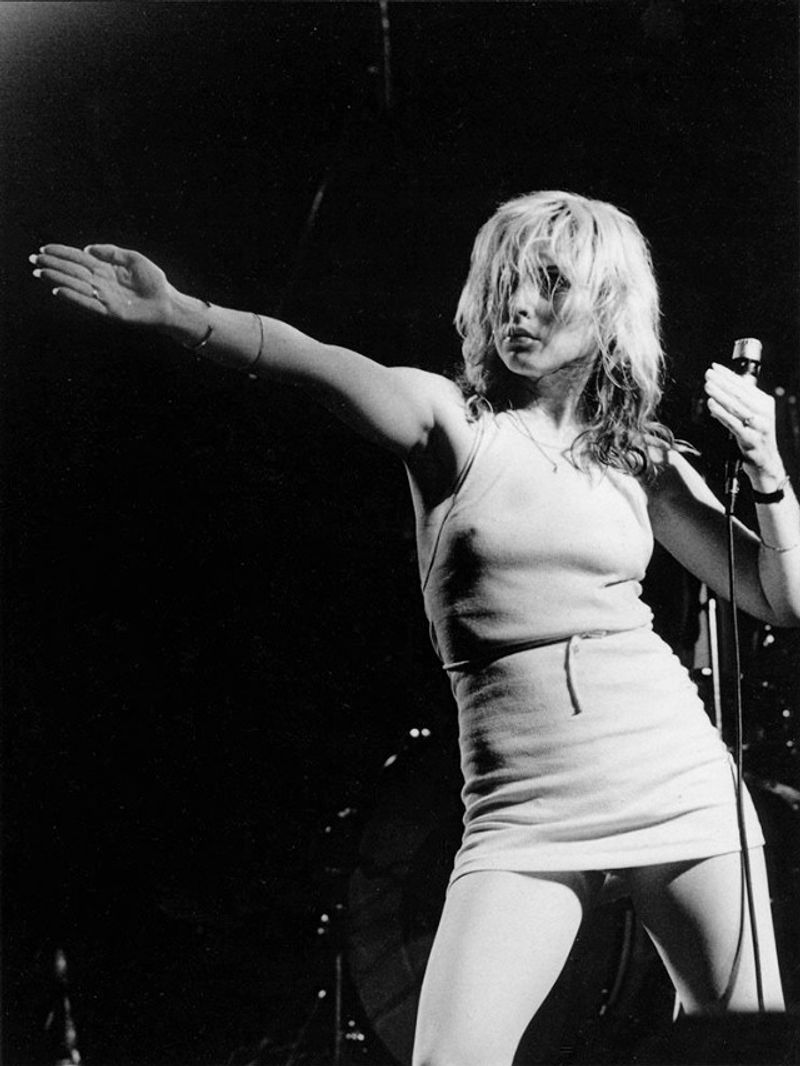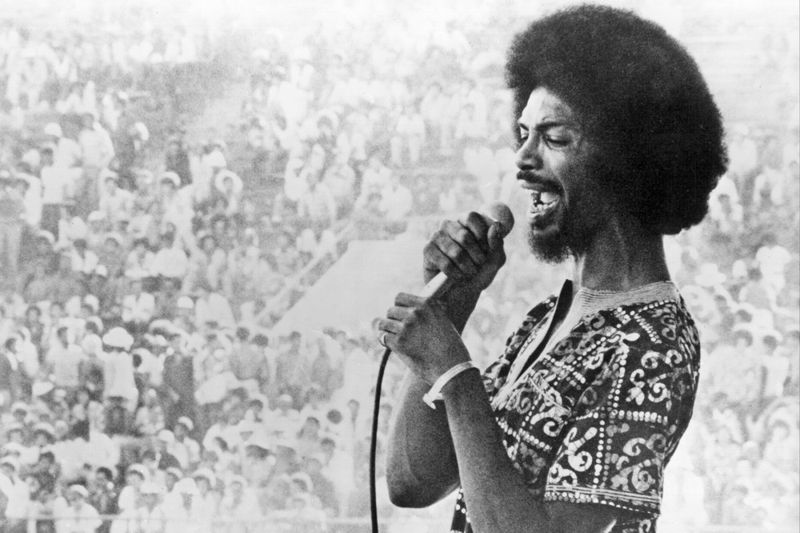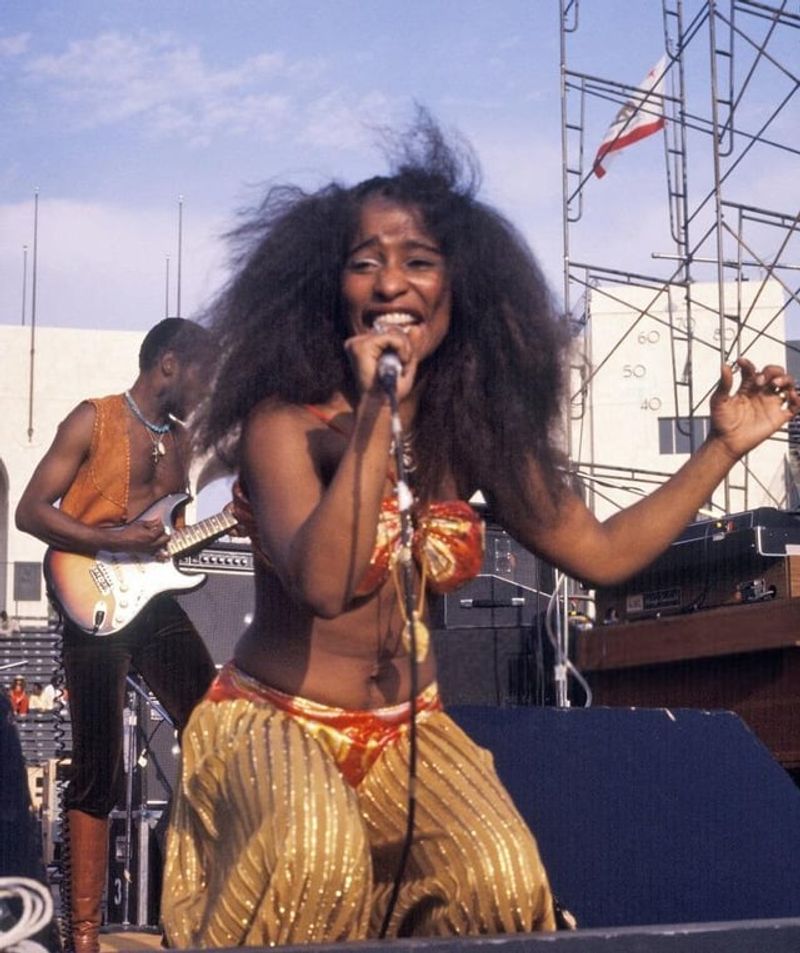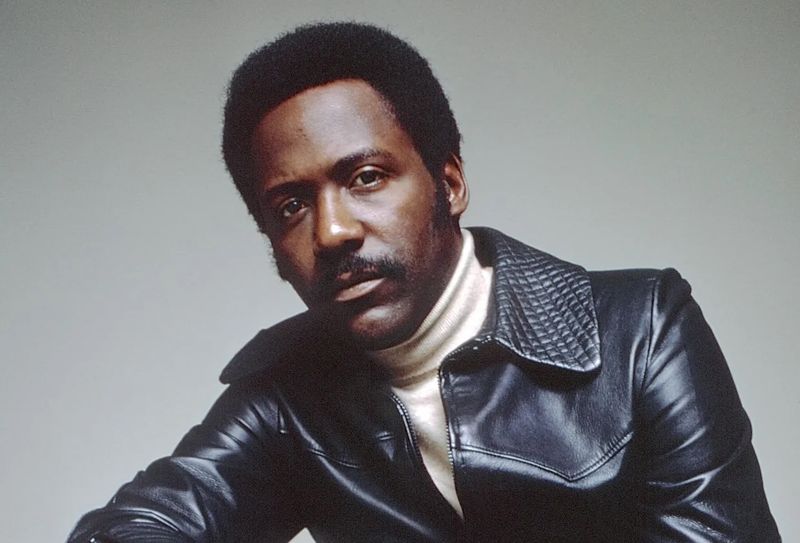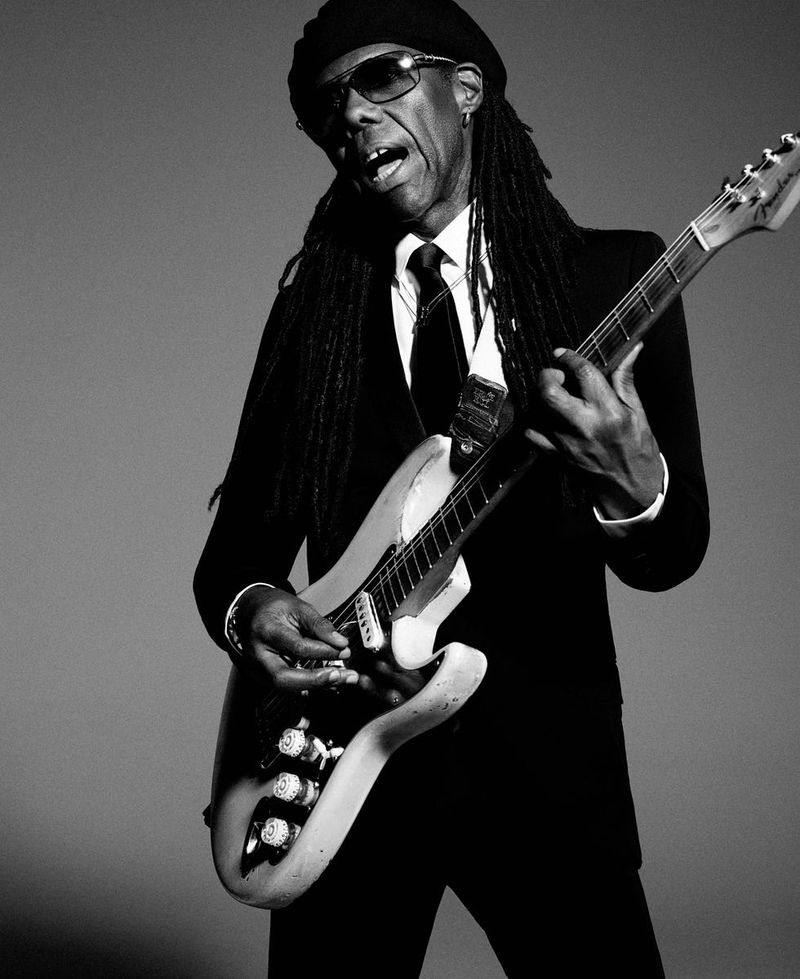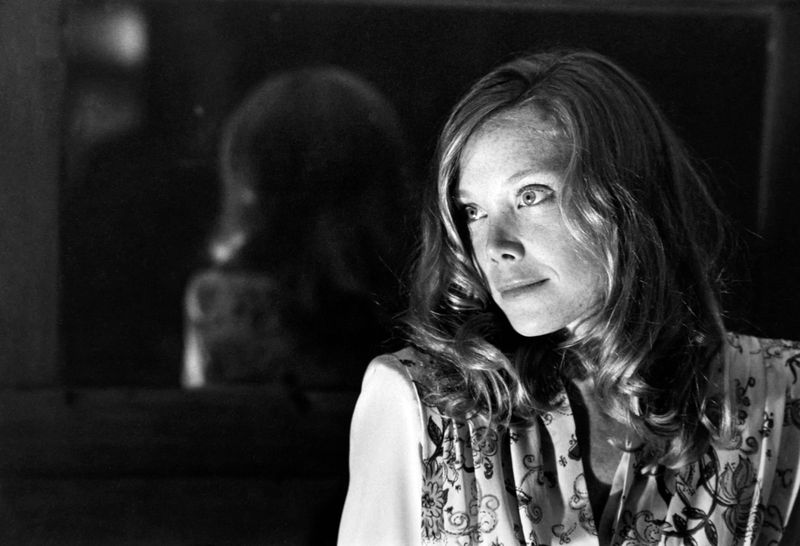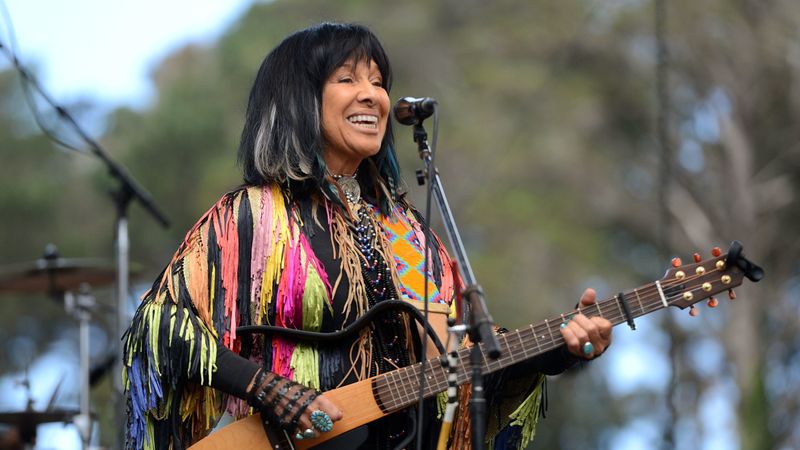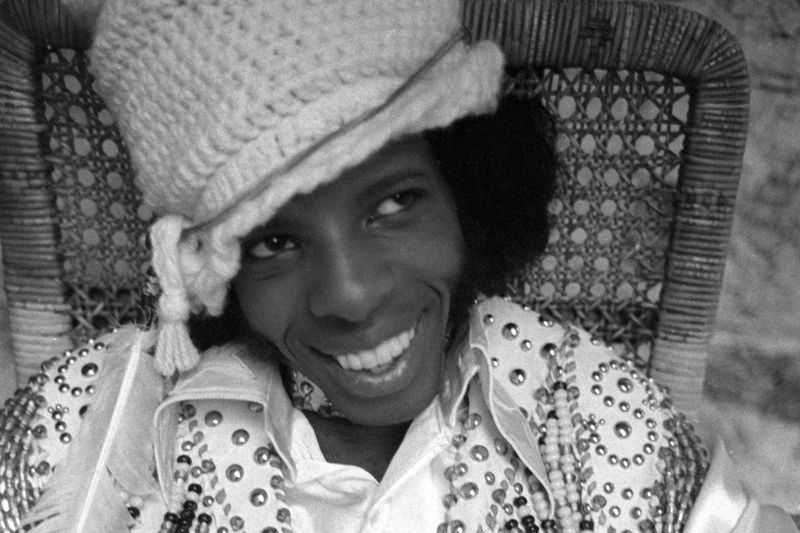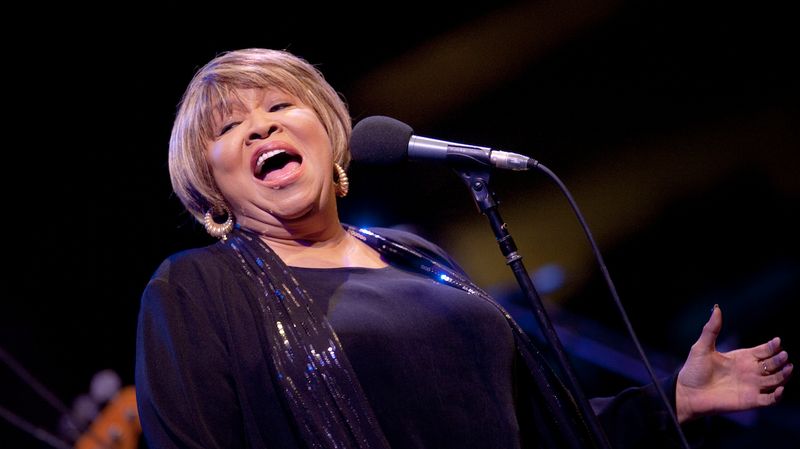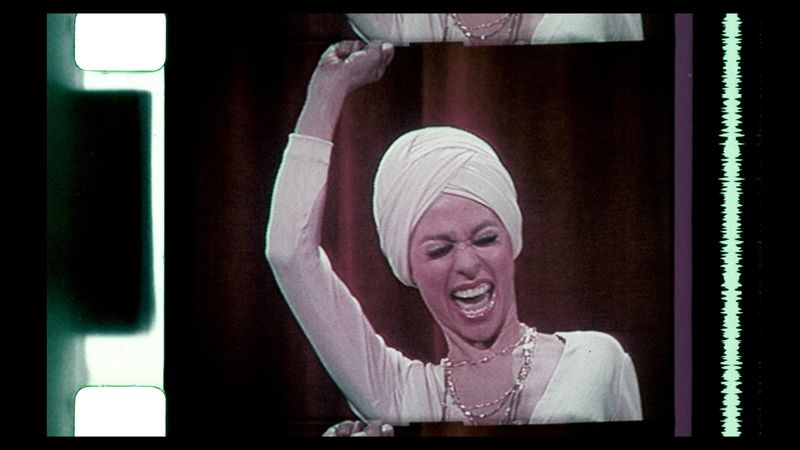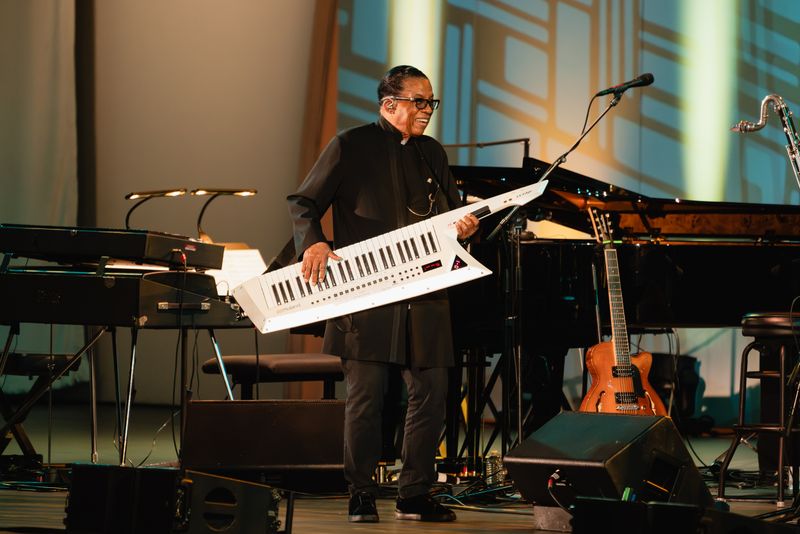The 1970s gave birth to some of the most influential artists and personalities who shaped our culture forever. While many became household names, others remain in the shadows despite their groundbreaking contributions. These living legends created magic during the bell-bottom era and continue to inspire generations, even if they don’t always get the spotlight they deserve.
1. Stevie Wonder: The Keyboard Revolutionary
Behind those iconic sunglasses lies a musical genius who forever changed the landscape of R&B and soul. During the ’70s, Wonder created masterpieces like “Innervisions” and “Songs in the Key of Life” while pioneering synthesizer techniques that musicians still study today.
His activism through music addressed racial inequality and social justice long before it became mainstream. Despite 25 Grammy Awards, Wonder’s technical innovations and boundary-pushing production work remain underappreciated compared to his vocal talents.
2. Pam Grier: Action Queen Before Her Time
When Hollywood barely offered meaningful roles to Black women, Pam Grier kicked down doors—literally. As the star of blaxploitation films like “Coffy” and “Foxy Brown,” she created a new archetype: the powerful female action hero who refused to be sidelined.
Her fierce performances challenged gender and racial stereotypes simultaneously. Though Tarantino’s “Jackie Brown” brought her some overdue recognition, Grier’s revolutionary impact on action cinema deserves far more celebration than it receives.
3. Billy Preston: The Fifth Beatle
The man with the most infectious smile in music history wasn’t just a session player—he was a force of nature. Preston’s funky keyboard work enhanced classics by the Beatles, Rolling Stones, and countless others while his solo hits like “Nothing from Nothing” showcased his remarkable voice.
His groundbreaking achievements as one of the first Black artists on Apple Records often go unmentioned. Preston’s ability to bridge rock, soul, and gospel influenced everyone from Elton John to D’Angelo, making him one of music’s most vital connectors.
4. Debbie Harry: Punk’s Fearless Pioneer
Before Madonna or Lady Gaga, there was Blondie’s fearless frontwoman shattering expectations of what a female rock star could be. Harry’s cool detachment and raw charisma helped bridge punk, new wave, and disco while her band conquered charts worldwide.
She navigated a male-dominated scene with unapologetic sexuality on her own terms. Though recognized as an icon, Harry’s songwriting contributions and boundary-pushing artistic vision remain overshadowed by her platinum blonde image and model looks.
5. Gil Scott-Heron: The Revolution’s Voice
“The Revolution Will Not Be Televised” wasn’t just a song—it was prophecy from music’s most powerful political poet. Scott-Heron’s fusion of jazz, soul and spoken word created the blueprint for conscious hip-hop decades before Kendrick Lamar or Public Enemy.
His razor-sharp commentary on racism, addiction, and American hypocrisy remains painfully relevant today. Though frequently sampled and cited by modern artists, Scott-Heron’s profound influence on political music and spoken word poetry deserves far greater mainstream recognition.
6. Chaka Khan: The Vocal Powerhouse
That voice! Those pipes! When Chaka Khan fronted Rufus in the ’70s, she unleashed a vocal style that combined raw funk power with jazz sophistication that singers still struggle to match today.
Her range and emotional delivery on classics like “Tell Me Something Good” set new standards for vocal performance. Despite her influence on everyone from Whitney Houston to Beyoncé, Khan’s technical brilliance and pioneering fusion of funk, disco, and jazz vocals remains underappreciated outside musician circles.
7. Richard Roundtree: Breaking Barriers as Shaft
Before Black Panther, there was Shaft—and Roundtree’s portrayal of the smooth detective redefined Black masculinity in cinema. His charismatic performance created a hero who was intelligent, sexy, and unapologetically powerful during a time when such roles were revolutionary.
The impact went far beyond blaxploitation films. Roundtree paved the way for generations of Black leading men while bringing complexity to what could have been a one-dimensional character. His cultural significance as one of film’s first modern Black action heroes deserves much more recognition.
8. Nile Rodgers: The Hitmaker Behind the Scenes
That infectious guitar riff on “Good Times”? That’s Nile Rodgers—the architect of disco and funk who made Chic one of the ’70s most innovative bands. His distinctive “chucking” guitar style created the backbone for countless dance floor classics.
Later, he produced career-defining albums for David Bowie, Madonna, and Diana Ross. Though musicians revere him, many fans don’t realize how many iconic songs bear his unmistakable stamp. His production genius and guitar innovation have shaped pop music for over five decades.
9. Sissy Spacek: Hollywood’s Fearless Chameleon
From the blood-soaked prom queen in “Carrie” to the coal miner’s daughter, Spacek’s transformative performances defined ’70s cinema. Her willingness to embrace uncomfortable, complex characters set new standards for actresses.
Her haunting vulnerability in “Badlands” showed her remarkable range early in her career. Though she won an Oscar for portraying Loretta Lynn, Spacek’s fearless artistic choices and technical precision across diverse roles deserve deeper appreciation from modern film audiences.
10. George Clinton: The Funk Mastermind
Aboard the Mothership, George Clinton created musical universes through Parliament-Funkadelic that defied genre and gravity. His psychedelic funk collectives produced mind-bending albums that blended science fiction, social commentary, and irresistible grooves.
The elaborate mythology and visual aesthetic he created was as revolutionary as the music itself. Though sampled countless times in hip-hop, Clinton’s visionary conceptual approach and boundary-shattering musical innovation deserve recognition alongside more mainstream funk and soul pioneers.
11. Buffy Sainte-Marie: Indigenous Trailblazer
Long before conversations about representation, Sainte-Marie brought Indigenous perspectives to mainstream music with unflinching honesty. Her powerful protest songs like “Universal Soldier” and “Now That the Buffalo’s Gone” addressed colonialism with poetic precision.
She was blacklisted by radio stations for her political stances. Despite winning an Oscar for “Up Where We Belong” and influencing generations of folk and activist musicians, Sainte-Marie’s groundbreaking career and unwavering commitment to Indigenous rights haven’t received the widespread recognition they deserve.
12. Sly Stone: Funk’s Troubled Genius
When Sly & The Family Stone performed at Woodstock, they weren’t just a band—they were a revolution in progress. Stone’s genius lay in creating a multiracial, mixed-gender group that seamlessly fused funk, soul, rock and psychedelia during deeply segregated times.
Albums like “There’s a Riot Goin’ On” captured America’s sociopolitical tensions with haunting prescience. Personal struggles and industry conflicts have overshadowed his legacy. His innovative production techniques and boundary-shattering musical vision deserve recognition alongside James Brown and George Clinton in funk’s holy trinity.
13. Mavis Staples: The Voice of Civil Rights
From the Staple Singers’ soul classics to her solo work, Mavis Staples’ voice carries the weight and hope of the civil rights movement. Her rich, gospel-trained vocals on anthems like “I’ll Take You There” became the soundtrack for social change.
The family group’s transition from gospel to message music was revolutionary. Though respected in music circles, Staples’ cultural importance as a living link between gospel tradition, the freedom movement, and contemporary soul deserves much wider recognition among younger generations.
14. Rita Moreno: The EGOT Trailblazer
Before EGOT was even a term, Rita Moreno had conquered all entertainment mediums while breaking barriers for Latina performers. Her 1970s work on “The Electric Company” and “Carnal Knowledge” showcased her remarkable range following her Oscar-winning turn in “West Side Story.”
She fought stereotypical roles throughout her career. Despite being one of only 16 EGOT winners (Emmy, Grammy, Oscar, Tony), Moreno’s groundbreaking achievements and her continued excellence into her 90s remain underappreciated in discussions of entertainment legends.
15. Herbie Hancock: Jazz’s Fearless Innovator
When jazz purists were looking backward, Hancock was propelling the genre into the future. His ’70s albums like “Head Hunters” and “Thrust” fearlessly incorporated funk, electronic, and African influences, creating entirely new sonic landscapes.
His pioneering use of synthesizers and vocoders transformed what jazz could be. Though respected in music circles, Hancock’s revolutionary fusion work and technical innovations that bridged acoustic and electronic worlds deserve greater recognition alongside more traditionally celebrated jazz figures.
